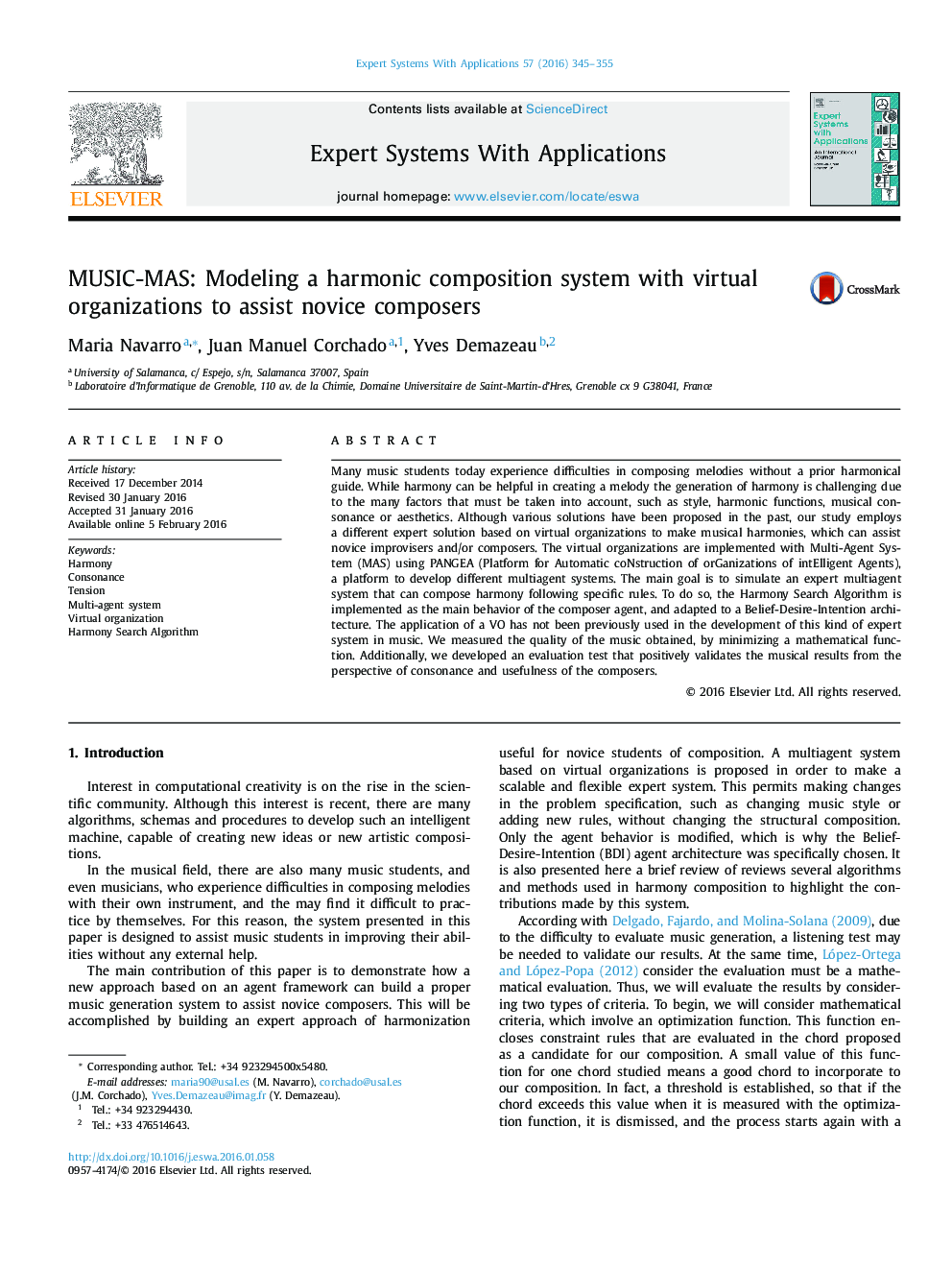| Article ID | Journal | Published Year | Pages | File Type |
|---|---|---|---|---|
| 381983 | Expert Systems with Applications | 2016 | 11 Pages |
•We model a solution based on virtual organizations to make chord harmony.•We simulate a creative BDI multiagent system based on rules to compose harmony.•We evaluate the success of the results by minimizing a mathematical function.•We evaluate the results according to the concepts of consonance and usefulness.
Many music students today experience difficulties in composing melodies without a prior harmonical guide. While harmony can be helpful in creating a melody the generation of harmony is challenging due to the many factors that must be taken into account, such as style, harmonic functions, musical consonance or aesthetics. Although various solutions have been proposed in the past, our study employs a different expert solution based on virtual organizations to make musical harmonies, which can assist novice improvisers and/or composers. The virtual organizations are implemented with Multi-Agent System (MAS) using PANGEA (Platform for Automatic coNstruction of orGanizations of intElligent Agents), a platform to develop different multiagent systems. The main goal is to simulate an expert multiagent system that can compose harmony following specific rules. To do so, the Harmony Search Algorithm is implemented as the main behavior of the composer agent, and adapted to a Belief-Desire-Intention architecture. The application of a VO has not been previously used in the development of this kind of expert system in music. We measured the quality of the music obtained, by minimizing a mathematical function. Additionally, we developed an evaluation test that positively validates the musical results from the perspective of consonance and usefulness of the composers.
